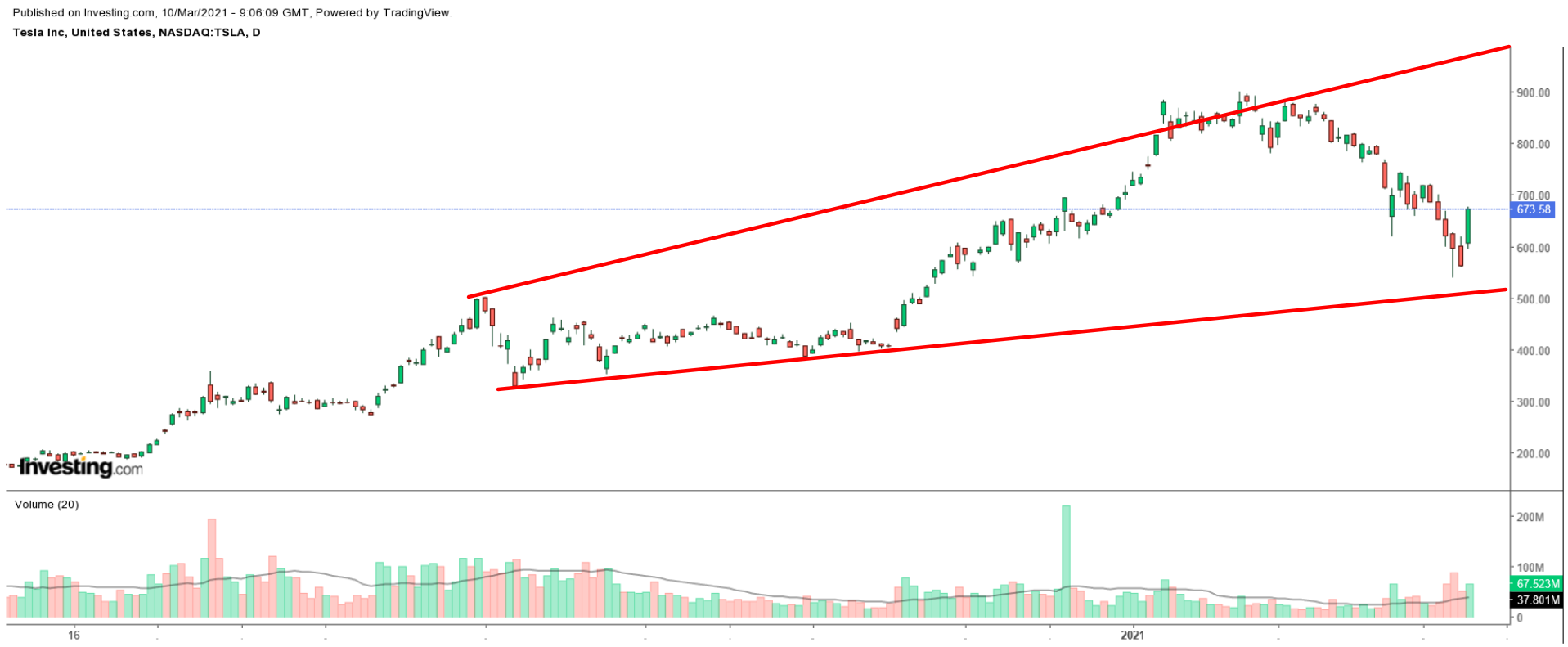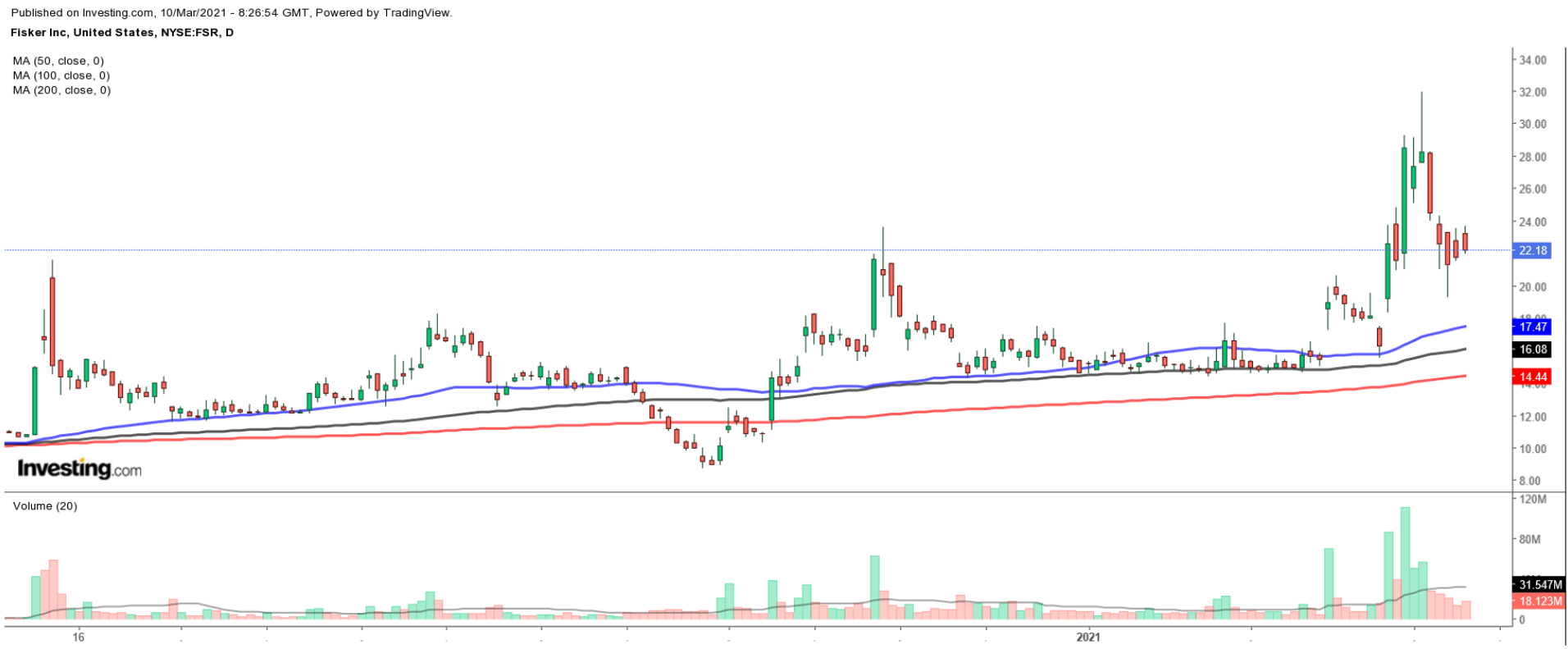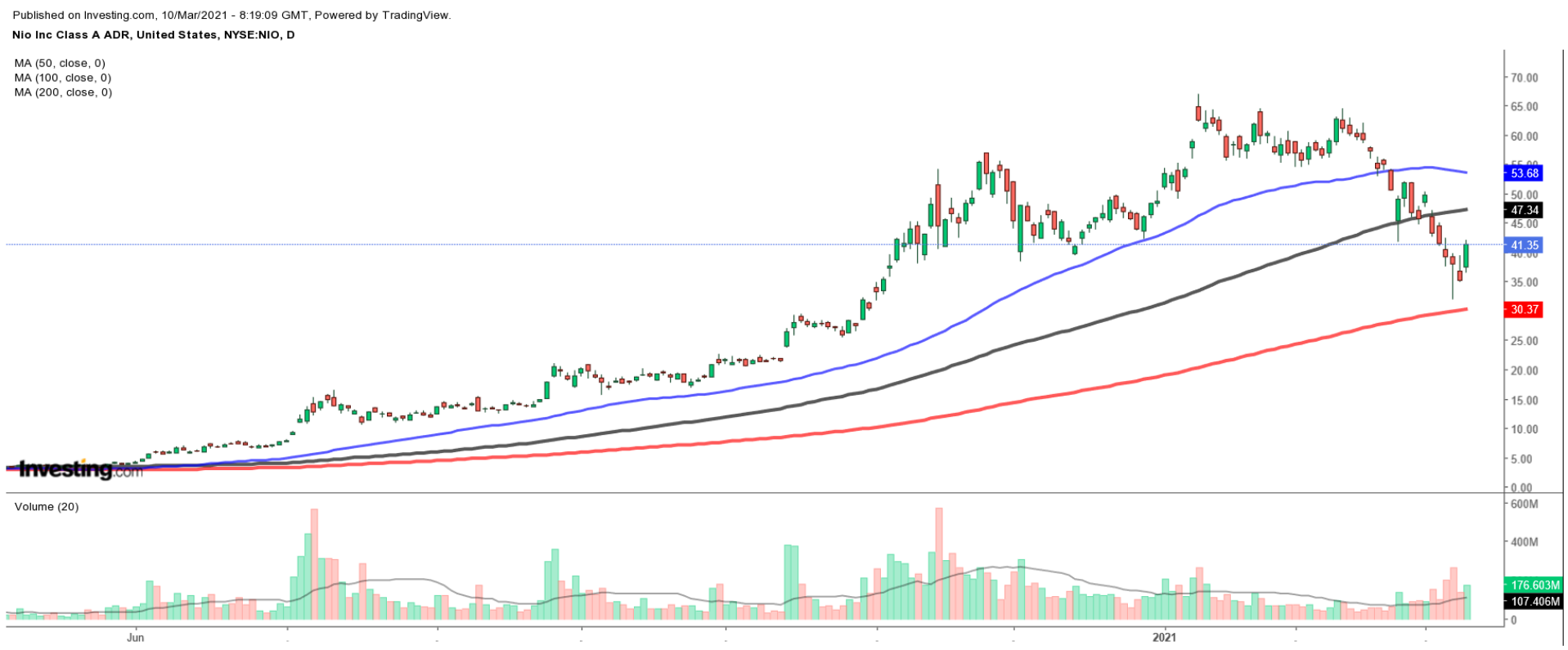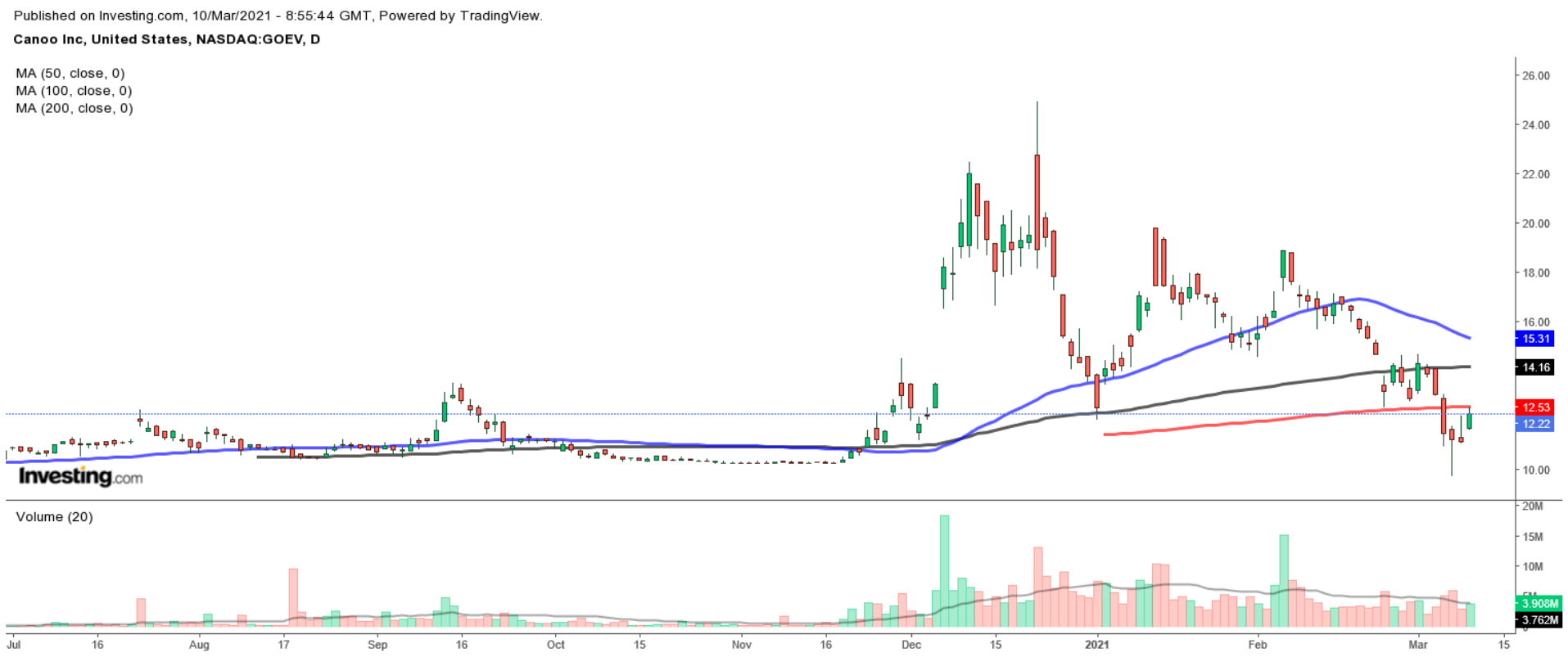The booming electric vehicle (EV) sector was one of the best-performing group of stocks over the last year, before an aggressive reset in valuations hit the industry in recent weeks.
That's most clearly visible with EV darling Tesla (NASDAQ:TSLA), whose shares have slumped 21% in just five weeks.

A plethora of negative factors are currently weighing on the sector including: rising yields leading investors to rethink frothy valuations; semiconductor shortages forcing EV makers to temporarily shut some production lines; worries over increasing EV competition from Ford (NYSE:F), General Motors (NYSE:GM), and Volkswagen (OTC:VWAGY).
Despite the recent pullback, there are more than a few attractive buy-the-dip names in the group that are worth considering. Here are three to consider:
1. Fisker: Next Big EV Market Disruptor
- Percentage Below ATH: 30.5%
Fisker (NYSE:FSR), like many of the new recent EV start-ups to enter the market, opted to go public through a special purpose acquisition company (SPAC), rather than a more traditional IPO.
The Henrik Fisker-led automaker made its trading debut on Oct. 30, 2020, following a blank-check merger with Spartan Energy Acquisition. The deal valued Fisker at $2.9 billion.
Fisker has endured some turbulence lately as the recent sector-wide selloff took some wind out of the high-flyer’s sails. After soaring 94.5% in the first two months of the year, FSR stock has tumbled 22.2% so far in March.
Shares ended at $22.18 on Tuesday, nearly 31% below their record high of $31.93 touched on Mar. 2, earning the Los Angeles, California-based electric carmaker a market cap of $6.5 billion.

Fisker has the potential to be the next big disruptor in the EV market. The company recently announced that global paid reservations for its Fisker Ocean electric SUV, which has a starting price of $37,499, have surged by more than 500% since mid-October to pass the 14,000-mark.
The company, which partnered with Magna International (NYSE:MGA) to manufacture the Ocean, plans to start production in the fourth quarter of 2022.
In a promising sign, Fisker recently signed a key production deal to team up with Taiwan's Foxconn—best known for its role in assembling iPhones for Apple (NASDAQ:AAPL)—to develop its second EV.
Production of the yet-to-be-named vehicle is set to start in late 2023. Volumes are expected to be over 250,000, with the two firms saying it will take just 24 months to manufacture.
2. Nio: China’s Fast-Growing EV Start-Up Leader
- Percentage Below ATH: 38.3%
Nio (NYSE:NIO) shares have had a remarkable run since plunging to a bear-market low of $2.11 during the peak of the coronavirus-related selloff of March 2020.
At one point, shares of the Shanghai, China-based electric carmaker—known as the Tesla of China—rebounded by more than 3,000% as investors piled into the EV name amid evidence of strong growth in vehicle deliveries.
After rallying to a record high of $66.99 on Jan. 11, NIO stock has since lost momentum, tumbling almost 40% to close at $41.35 yesterday. At current valuations, the EV maker has a market cap of $67 billion.

Nio, which is the world’s fifth largest automaker by market cap, is poised to rally back towards its recent highs in the months ahead thanks to its growing status as one of the leading names in the fast-growing Chinese EV market.
The automaker, which currently has three electric vehicle models on sale—all SUVs—delivered 17,353 vehicles in the fourth quarter, up 111% from the same period last year. That brought total vehicles delivered in 2020 to 43,728, which is up more than 113% year-over-year.
In comparison, domestic vehicle deliveries last year by China-based rivals Li Auto (NASDAQ:LI) and Xpeng Motors (NYSE:XPEV) totaled 32,624 and 27,041 respectively.
Looking ahead, Nio sees Q1 deliveries in a range of 20,000 to 20,500 vehicles, which would be up 421%-to-434% from the year-ago period.
Last week, Xpeng forecast deliveries of 12,500 vehicles in the first quarter, while Li Auto gave the lowest Q1 forecast of the three, at 10,500-to-11,500 deliveries.
3. Canoo: High Risk, High Reward EV Start-Up
- Percentage Below ATH: 50.9%
Canoo (NASDAQ:GOEV) joined the flood of electric vehicle companies which chose to go public via a blank-check deal when it completed a reverse merger with SPAC Hennessey Capital late last year. The deal valued Canoo at $2.4 billion.
Shares of the Los Angeles-based EV start-up, which was founded in late 2017 by a small group that split off from EV company Faraday Future, began trading on the NASDAQ on Dec. 22, 2020.
After hitting a high of $24.90 per share on its first day of trade, GOEV shares have since dropped almost 51%, settling at $12.22 last night. The stock has a market cap of $2.94 billion.

While still highly speculative, Canoo could eventually become one of the most compelling growth opportunities for investors in the EV sector in the years ahead, given its potential to create a variety of vehicles using its patented, scalable, low-floor, steer-by-wire EV platform, dubbed “skateboard.”
The EV company, which touts a month-to-month subscription model, specializes in cars, vans, minibuses and commercial vehicles for rental and sharing services. It has also floated the possibility of developing an electric pickup truck in the future.
Canoo’s first offering, which the company describes as a "lifestyle vehicle" or "loft on wheels", will go into limited production in 2022. Commercial production and rollout of the multipurpose delivery vehicle (MPDV), which has a starting price of $33,000, is then slated for 2023.
Highlighting the buzz surrounding Canoo and its innovative EV technology, Apple reportedly held meetings with the company in the first half of 2020, before it went public via the SPAC route. As part of Apple’s secretive effort to build its own electric vehicle, the two companies discussed options ranging from investment to an acquisition, before talks eventually fell apart.
